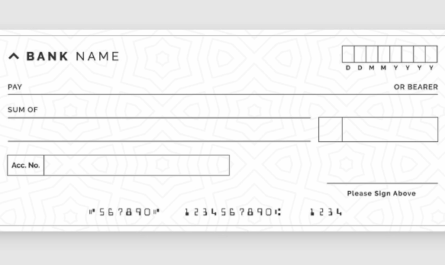Bank loans play a significant role in the financial landscape, providing individuals and businesses with access to funding for various purposes. Understanding how bank loans work is essential for anyone considering borrowing money from a financial institution. In this blog, we will explore the meaning of bank loans, how they function, and what you need to know before applying for one.
Bank Loans Meaning
Bank loans refer to financial products offered by banks and other financial institutions to individuals, businesses, or organisations in need of funds. These loans come with specific terms, interest rates, and repayment schedules that borrowers must adhere to. Bank loans can be used for diverse purposes, such as purchasing a home, starting a business, or covering unexpected expenses.
Also Read: Loan against Securities: Interest Rate, Fees and Charges
What Are Bank Loans?
Bank loans are a form of debt in which a borrower receives a sum of money from a bank and agrees to repay the amount over a set period, along with interest. Banks assess the creditworthiness of borrowers based on factors like credit history, income, and existing debts before approving a loan. The terms of a bank loan, including interest rates and repayment periods, vary depending on the type of loan and the borrower’s financial profile.
How Do Bank Loans Work?
When you apply for a bank loan, the bank will evaluate your creditworthiness by reviewing your credit report, income, employment status, and other relevant financial information. Based on this assessment, the bank will determine the loan amount, interest rate, and repayment terms you qualify for. If approved, you will receive the loan amount in a lump sum or in instalments, depending on the loan type.
Also Read: Nonperforming Loan (NPL), Types, Causes, Impact on Banks
Repayment of the loan typically begins after a grace period, during which you may not have to make payments. You are required to repay the loan in regular instalments, which consist of both principal and interest components. Failing to make timely payments can result in late fees, penalties, and negative impacts on your credit score.
Types of Bank Loans
There are several types of bank loans available to borrowers, each tailored to specific needs and circumstances. Some common types of bank loans include:
Personal Loans: Personal loans are unsecured loans that individuals can use for various purposes, such as debt consolidation, home improvements, or travel expenses.
Mortgage Loans: Mortgage loans are used to finance the purchase of a home or property. These loans are secured by the property itself and typically have long repayment terms.
Business Loans: Business loans are designed to help entrepreneurs and businesses fund operations, expand, or invest in new ventures. These loans may be secured or unsecured, depending on the lender’s requirements.
Auto Loans: Auto loans are used to finance the purchase of a vehicle. The vehicle serves as collateral for the loan, and repayment terms are based on the vehicle’s value and the borrower’s creditworthiness.
Student Loans: Student loans are specifically designed to help students cover the cost of education. These loans may be federal or private and come with varying interest rates and repayment options.
Also Read: Reason to Choose to Refinance Your Loan in India
FAQs:
Q1: What is the minimum credit score required to qualify for a bank loan?
The minimum credit score required to qualify for a bank loan varies depending on the lender and the type of loan. Generally, a higher credit score increases your chances of approval and favourable loan terms.
Q2: Can I apply for a bank loan with a low income?
While having a low income may affect your eligibility for certain loans, some lenders offer options for borrowers with lower incomes. It’s essential to demonstrate your ability to repay the loan through other means, such as assets or co-signers.
Q3: How long does it take to get approved for a bank loan?
The time it takes to get approved for a bank loan varies depending on the lender, the loan type, and your financial situation. Some loans may be approved within a few days, while others may take longer due to additional documentation requirements.
Q4: Can I pay off a bank loan early without penalties?
Some bank loans allow borrowers to pay off the loan early without penalties, while others may have prepayment penalties or fees. It’s essential to review the terms of your loan agreement to understand the prepayment options available to you.
Q5: What happens if I default on a bank loan?
Defaulting on a bank loan can have serious consequences, including damage to your credit score, legal action, and potential seizure of collateral. It’s crucial to communicate with your lender if you are facing financial difficulties to explore alternative repayment options.
In conclusion, bank loans are a vital financial tool that can help individuals and businesses achieve their goals and manage financial needs. By understanding how bank loans work, the types of loans available, and the responsibilities of borrowers, you can make informed decisions when borrowing money from a bank. Remember to compare loan options, review terms carefully, and borrow responsibly to maintain financial stability.
Unlock financial freedom with Airtel Personal Loans. Experience a 100% digital process, instant approval, and flexible EMIs. Get closer to your dreams. Apply now through the Airtel Thanks app.



